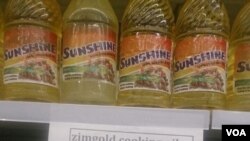Industry and Commerce permanent secretary Abigail Shonhiwa says lack of clarity on the import ban of some basic commodities could have fueled protests in the Beitbridge border post.
Shonhiwa says people are free to import some of the goods listed in the new law for domestic consumption.
Addressing delegates attending a three-day Buy Zimbabwe 2016 Local Summit in Mutare today, Shonhiwa said the import ban only affects the commercial sector and not individuals who buy goods for domestic consumption.
“The import ban on the targeted goods is for commercial sectors and purposes not other people that buy the goods in small quantities. So, I have to say there was no clarity on the issue and due communication on this would be done by end of day.”
She also stated that the import ban under Statutory Instrument 64 of 2016 was not targeted at South African goods alone.
“I arrived late here because I was attending SADC meetings and I do have to reiterate that the SI Statutory Instrument on the banning of the goods was not put to target South African products. In the SADC region the most affected country by the SI is South Africa because of the level of its development. This SI is not targeted at South Africa nor targeted at the goods from South Africa.”
She said the Buy Zimbabwe Campaign, which is canvasing for the purchase of local goods, is a noble idea and urged companies to produce quality goods that compete well with others from different nations.
Included in the list of banned import are goods like furniture, baked beans, potato crisps, cereals, bottled water, mayonnaise, salad cream, peanut butter, jams, maheu, canned fruits and vegetables, pizza base, yoghurts, flavoured milks, dairy juice blends, ice-creams, cultured milk and cheese.
The Buy Zimbabwe summit ends Friday.






